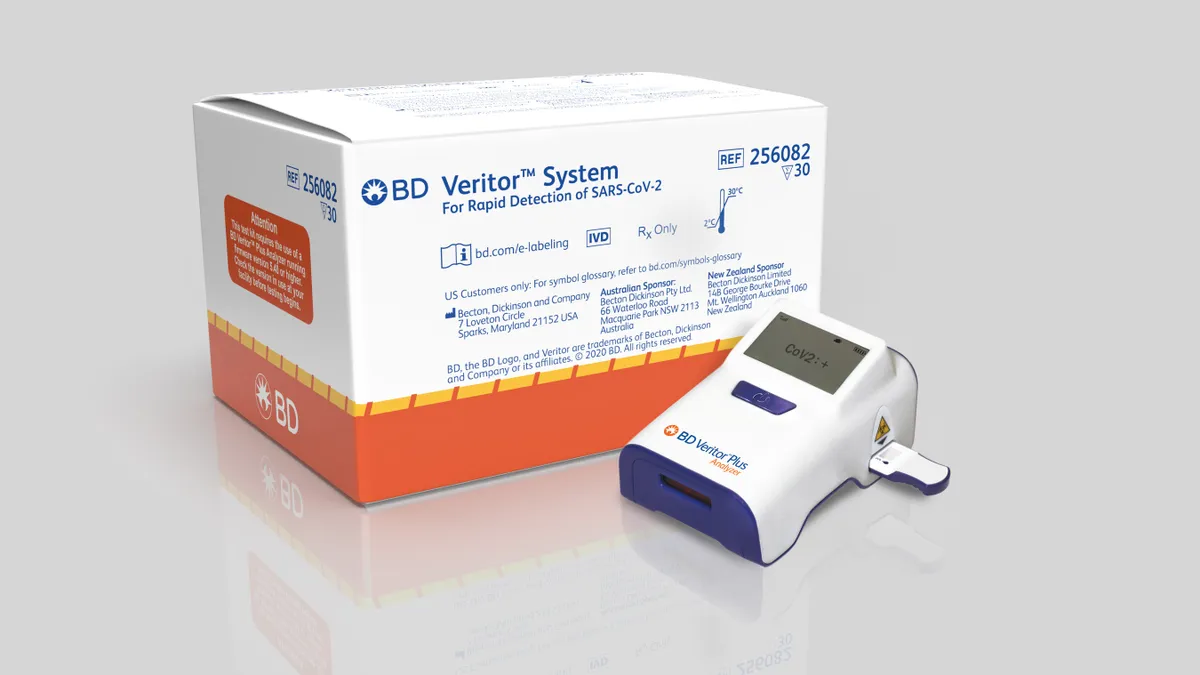Dive Brief:
-
BD has teamed up with the software platform ImageMover to let users its COVID-19 antigen tests to capture data and share it with federal and state agencies.
- News of BD’s partnership with ImageMover, which is intended to address that burden, comes days after the Association of Public Health Laboratories (APHL) revealed a system that also uses an app for sharing the results of Abbott's BinaxNOW antigen test with state public health agencies.
- Antigen kits have enabled schools and other organizations to check people for COVID-19 but the diversification of testing locations has created data flow bottlenecks. In December, CDC said some states were sending no antigen results and point-of-care testing locations were “finding that the burden of reporting is too high.”
Dive Insight:
The U.S. government put antigen testing at the heart of its effort to safely reopen the economy last summer when it ordered 150 million BinaxNOW tests. Coupled with state orders for antigen tests from BD and Quidel, the antigen deal gave the U.S. capacity to routinely test many millions of people for COVID-19 before allowing them to enter institutions and facilities.
However, the surge in antigen testing failed to translate into a commensurate rise in national-level knowledge of the state of the pandemic, as John Wiley, part of CDC’s COVID-19 Diagnostic Data Project, explained in December.
“We've noticed that despite the millions that have gone out, the number of reported results that are coming back through to HHS are much lower than expected. Some states aren't sending the results, others are just sending the positive results. And in a lot of cases the points of care, say a K-12 school doesn't have the right technology or reporting capability,” Wiley said.
The need for better access to data, which is required to inform contact tracing and identify hot spots, led to multiple initiatives.
BD is responding to that need by connecting its BD Veritor Plus System to the ImageMover app. In doing so, BD has enabled testing sites that lack the information technology infrastructure needed to connect the test to electronic health records to still automatically share results with public health authorities. The app also facilitates the sharing of results with test subjects.
Abbott recently made its own move to improve the management of antigen test results. Last week, APHL said it had worked with Abbott to enable users of the BinaxNOW and associated NAVICA app to send encrypted results to state public health agencies using its AIMS+ service. All 50 states use the service.
The limitations of the NAVICA app prior to the integration with AIMS+ were identified in a pilot study of the use of BinaxNOW in schools. The study found “reporting needs can be significant and require a large amount of staff time and expertise,” adding that NAVICA prevented users from combining data from multiple sites to generate an overview of the COVID-19 situation across a district.












